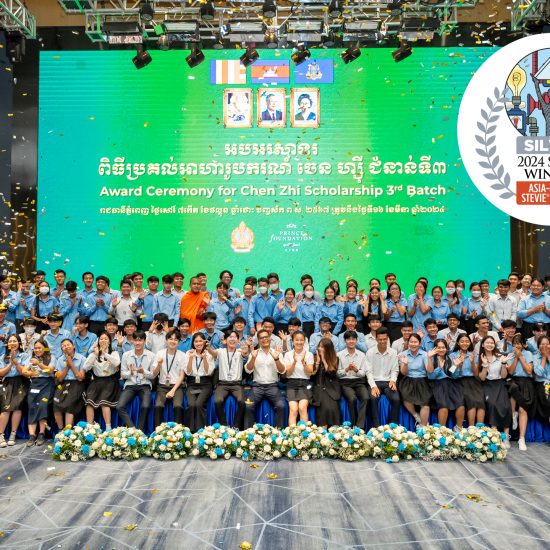When Russian President Vladimir Putin invaded Ukraine, he laid down a marker for a critical mass of world leaders who, like him, think in civilizational rather than national terms. In the minds of these leaders, the stakes in Ukraine are about much more than the future of a former Soviet republic or the rejiggering of Europe’s security architecture.
Much like Putin’s ambition to establish a Russian world that is defined by the geography of Russian speakers and adherents of Russian culture rather than internationally recognized boundaries, men like Chinese President Xi Jinping and Indian Prime Minister Narendra Modi envision a 21st-century world order in which civilisationalist aspirations trump national sovereignty, freedoms, and minority rights. To them, creating a 21st-century world order involves coercion and potentially, if need be, the use of military force to redraw maps to suit their, at times, downplayed aspirations.
It comes at the expense of the independence of countries like Ukraine, the rights of littoral states in the South China Sea and ethnic and religious minorities like Indian and Chinese Turkic Muslims, and potentially much of non-Indian South Asia. No doubt Xi and Modi are eyeing Ukraine closely for lessons learned. Putin has crossed a Rubicon at tremendous human, political and economic costs with no immediate potential reversal.
Xi has other immediate fish to fry. He is unlikely to cross a similar Rubicon any time soon to achieve his ambitions in the South China Sea and Beijing’s One China policy that views Taiwan as an integral part of the mainland. Neither is Modi, whose ideological home embraces the concept of Akhand Bharat or an India that stretches from Afghanistan to Myanmar and encompasses nuclear-armed Pakistan as well as Bangladesh, Nepal, Bhutan, Sri Lanka, and the Maldives.
US and European diplomats take heart from the fact that since first becoming prime minister in 2014, Modi has refrained from publicly referencing Hindu nationalist geopolitical ambitions. He seemingly last spoke publicly about those ambitions in an interview in 2012 when, as Chief Minister of Gujarat, he suggested that “Hindustan, Pakistan, and Bangladesh should rejoin.”
Nevertheless, one lesson the war in Ukraine offers is that the United States, Europe, and their Asian allies at their peril take civilisationalist aspirations lightly.
Despite warnings by US intelligence and statements by civilisationalist, nationalist and far-right voices in Putin’s immediate entourage, many wrongly believed that the Russian leader was playing bluff poker in the run-up to the invasion but would not send troops into Ukraine.
Six weeks into the Ukraine invasion, a prominent militant Hindu nationalist with close ties to Modi predicted, in the first indication of a timeline, that the aspirations of the Hindu nation could be achieved in the next 15 years.
“You spoke about 20-25 years, but if we increase our speed, I say 10-15 years… I do not have the power at all…it is with people. They have the control. When they are ready, everyone’s behaviour changes. We are preparing them… We will walk together as an example, without fear. We will talk about non-violence, but we will walk with a stick. And that stick will be a heavy one,” said Mohan Bhagwat, the leader of Rashtriya Swayamsevak Sangh (RSS).
The RSS, with some six million members, is Modi’s political cradle that gave birth to his ruling Bharatiya Janata Party (BJP). Founded almost a century ago, the RSS is a militant, right-wing Hindu nationalist paramilitary volunteer organisation.
Modi’s policies, including his 2019 amended citizenship law that provides a pathway for citizenship to Hindus from Afghanistan, Bangladesh, and Pakistan but not to Muslims, as well as the stripping that year of the autonomy of Jammu and Kashmir, India’s only Muslim majority state, seemed to be nods towards Akhand Bharat.
India’s Muslims constitute the world’s third-largest Muslim community and account for 14 per cent of India’s 1.4 billion population.
It may be a long shot, but Modi could be the one major civilisationalist leader with whom engagement has a chance of containing, if not taming, whatever irredentist instincts he may have. Those instincts likely constitute one reason why India has sought to walk a middle road in the Ukraine crisis.
In contrast to Russia and China, with whom battles lines have been or are being drawn, engagement with India by the United States, Europe, Japan, South Korea, and other Asian states is based for a good part on a perceived shared geopolitical interest to counter the rise of China in the Indo-Pacific.
In a broadening of engagement that goes beyond existing close economic and political ties, including the Quadrilateral Security Dialogue or Quad, German Chancellor Olaf Scholz has invited Modi to attend a summit in June of the Group of 7 (G-7) in the Bavarian Alps.
The Quad is a strategic security dialogue between Australia, India, Japan, and the United States, while the G-7 groups Canada, France, Germany, Italy, Japan, Britain, and the United States.
In another positive sign of engagement, Hindu and Muslim religious leaders and religious nationalists are quietly exploring whether they can find common ground in shared humanitarian values.
RSS executive committee member and former BJP secretary-general Ram Madhav said in an interview last week with this writer that “Eastern civilizations (and) Eastern religions all share the same civilizational value system.” Madhav referenced Hinduism, Buddhism, Sikhism, Jainism, and ‘an Islam with an Eastern value system like Indonesian Islam.’
Madhav, widely viewed as a moderate among Hindu nationalists, was referring to a concept of Humanitarian Islam put forward by Nahdlatul Ulama, the world and Indonesia’s largest Muslim civil society movement.
Nahdlatul Ulama advocates reform of what it calls “obsolete” and “problematic” elements of Islamic law, including those that encourage segregation, discrimination, and/or violence towards anyone perceived to be a non-Muslim. It further accepts the Universal Declaration of Human Rights without reservations and envisions inter-faith relations based on shared common values.
In Madhav’s mind, the RSS’s vision of Hindu nationalism or Hindutva already incorporates principles of humanitarianism as articulated by Nahdlatul Ulama. The movement’s critics reject that assertion. Moreover, the RSS’s alleged association with widespread inter-communal violence and perceived discrimination of Indian Muslims calls it into question. (IPA Service)
By arrangement with the Arabian Post
The post Modi’s ‘Civilisationalism’ May Be Another Potential Flashpoint first appeared on IPA Newspack.









